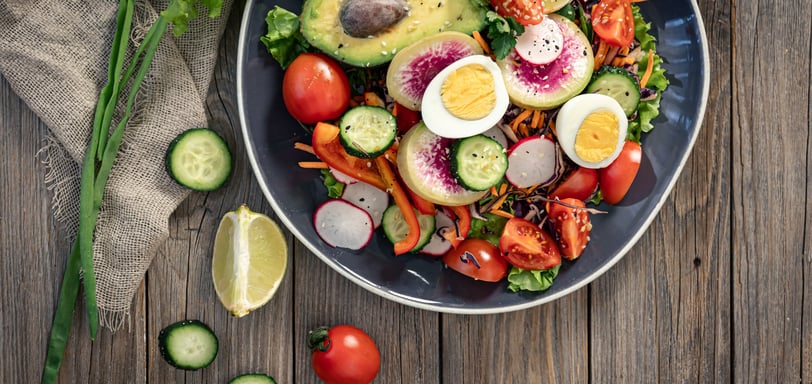Essential Guide to a Gout-Diet
Find out the best foods to consume and which food to avoid that have high purine levels.
9/2/20242 min read


A gout-diet is essentially a low purine that reduces uric acid levels in the body and prevent gout attacks. Low purine diet can offer several benefits including below:
Lower risk of kidney stones
Reduced gout attacks
Improved joints health
Support weight loss or maintenance to reduce gout risk
Enhanced hydration
Reduced risk of associated conditions such as diabetes
What is gout-diet?
Foods to consume for a gout diet:
Try these certain foods and drinks to reduce uric acid in your body:
Fruits
Most fruits (high in vitamin C) are low in purines such as cherries, berries, bananas, apples, pineapples
Vegetables
Almost all vegetables are suitable for a gout-diet, including cucumbers, mushrooms, spinach, tomatoes, broccoli,
(Avoid ladyfinger as it increase the uric acid levels)Low-fat Dairy Products
Studies shows that drinking beverages such as low-fat milk can reduce risk of a gout attack. Includes the following in your gout-diet too:Low skim milk, cheese (mozzarella, parmesan, cheddar incl), yogurt
Juices
Fruit juices such as cherry juice can reduce uric acid levels significantly and gout flare-up frequency. It contains antioxidants called anthocyanins that are anti-inflammatory and reduce inflammation that are closely associated with gout.
Another excellent choice is pomegranate juice as it is helps to lower uric acid levels in the blood.Coffee (in moderation)
A recent study has shown that coffee competes with the enzyme that breaks down purine in the body, thus it does not raise uric acid levels. Coffee may even lower the risk of a gout attack.
Foods to consume for a gout diet:
Avoid food and beverages that are high purines such as below:
Alcohol
Gout-sufferers should avoid alcohol intake to avoid recurrent gout attacks. Alcohol such as beer contains high level of purines and consumption can pose additional risks.
Red meats
Red meats in general are high in purines and should be eaten occasionally. Beef and lamb both contain high level of purine while take moderate consumption of pork and pork-related products.
Organ meats
Similarly to red meats, organ meats such as liver, kidneys have higher concentration of purines. Avoid them and other foods that are made from these organs such as sweetbreads and sausages.Seafood
Generally fish and seafood are common source of purines. Avoid these seafood such as scallops, sardines, anchovies and mackerel. Shellfish such as lobster, crab, shrimp and mussels are high in purines too and people with gout should limit eating them.High-fructose products
High-fructose products has been shown to contribute to obesity, diabetes and it can also contribute to gout. Purines are released when the body breaks down high-fructose food such as soda, candies, packaged sweets and fast food which are loaded in calories, sodium and added sugar.
Gout Relief
Discover effective strategies for managing gout attacks.
Get the latest updates about gout
© 2024. All rights reserved.
